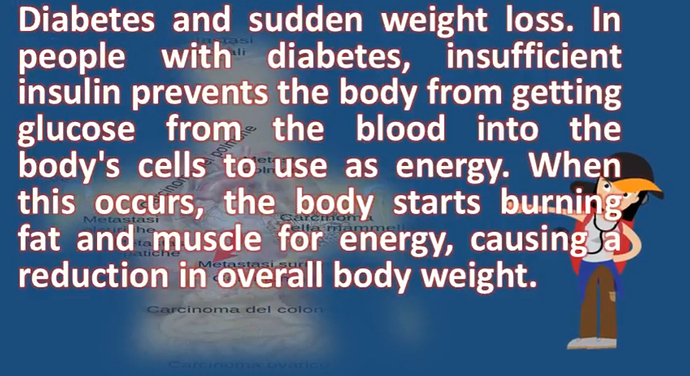In the Obesity Code dr.Fung makes a convincing case on high insulin being the root cause of obesity. What I don’t understand is why then there are skinny T2 diabetics. If they are diabetics their insulin must be high and they must have developed insulin resistance too. How come they didn’t gain weight then?
Insulin, weight gain and skinny diabetics
A quote from @Baytowvin might explain it the best.
It makes me think of the analogy Dr Lustig used in one of his lectures:
What happens when you give a skinny (insulin sensitive) kid a cookie? They have extra energy to burn so they run around in circles to burn it off.
What happens when you give a fat (insulin resistant) kid a cookie? He wants another cookie, because the first one just went to storage and he’s still hungry because he doesn’t have usable energy.
In your example the skinny kid isn’t likely going to be diabetic, being insulin sensitive. My question is why also skinny people can be T2 diabetic, as that seems to contradict Dr.Fung’s idea that high insulin makes us fat.
Non-correlation means non-causation, as Carl would say
Some people can only put on so much fat before they become ill. They have a low personal fat threshold - either a lower than average number of fat cells or fat cells that are unable to expand. If they exceed the threshold they start to show the other signs of metabolic syndrome but not necessarily the weight gain.
Diabetes is a symptom of insulin resistance not a disease. One can still be insulin resistant and have a high metabolism and burn off the glycogen so as not to store any.
Insulin resistance is one of the biggest factors in obesity, but you can be insulin resistant without appearing obese. Often, there’s still damage happening on the inside, but different people store fat in different ways.
It’s important to remember that obesity itself is a marker of metabolic issues. It’s not a cause, and it’s not the end result. As fucked up as it sounds, I’m glad I became fat. If I had stayed skinny, I would probably be dead soon because I wouldn’t have had the clear marker that something was wrong.
Search TOFI to learn more.
How dr Fung puts it, everyone injected with insulin gains weight, infallibly.
What you guys are saying is that this is not the case, and gaining weight is only one of the possible things that high insulin can cause.
Correct?
It would be an issue of where they store it I suppose. If they lack the subcutaneous storage capacity then the weight gain from injected insulin (much like that from endogenous insulin) would be visceral & organ fat thereby worsening the diabetes. That’s why skinny type 2 diabetics often have worse health outcomes - doctors don’t want them to or believe that they can diet their way out of diabetes so they put them straight onto drugs & tell them to keep eating those carbs.
From what I understand, obesity is a symptom of diabetes t2, but it’s ‘optional’. It’s possible to be obese without type 2 diabetes, and it’s possible to have diabetes type 2 without being overweight.
You can become insulin resistant if you have frequent really high spikes, even if you then later work it off. There are very fit people who developed type 2 diabetes or pre-diabetes, when they for example used sugar gels etc to fuel their workouts.
Example: Sami Inkinen, even prof Tim Noakes who used to run marathons…
My dad was a type 2 diabetic and underweight! He was a lifelong believer in the HCLF life. We ate so much processed food growing up because it was “low fat.” It runs in our family, so there was a genetic predisposition to it (also he had crazy cholesterol). He was a polio survivor so he worked very hard to keep his weight low so that he could walk unassisted, and ended up dying of cancer. 
I’ve always thought that the reason is that they don’t develop leptin resistance as easily.
This might explain why?
Two types of insulin resistance[2] IR:
-
Physiologic (skeletal muscles) HOMA-IR: Good! Physiologic Glucose Sparing; see also: The Randle Cycle, also known as the glucose fatty-acid cycle - Dr. Jack Kruse has a pretty good idea[1] about what’s happening with this?
-
Peripheral (liver) Hepatic: Bad!
Footnotes:
[1] ”…What good is using cold[3] to increase your current of flow if you don’t have the EZ water surrounding your mitochondria and proteins to make the superconducting cables to begin with?..” - Dr. Jack Kruse, See also: DNA helix has chiral water ‘spine ’
[2] EXAMPLE: “…This approach is not intended for people who do not produce enough insulin (i.e. type 1 diabetes, type 1.5, LADA and MODY) but rather for people who are insulin resistant and produce large amounts of insulin but still have high blood sugar levels (i.e. pre-diabetes and type 2 diabetes). …”
[3] •Cold temperatures activate brown fat… •Brown fat improves your blood sugar metabolism… •Brown fat can increase your metabolic set point (J. Fung, et al.)… …More


